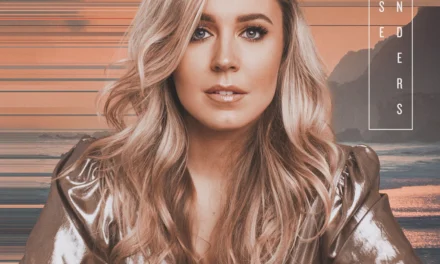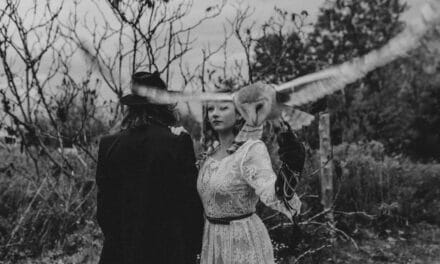photo credit to Izzy Dachs @isabellesphotographs
What does it mean to feel stuck in a place that doesn’t love you back? Maybe it’s a fogged-up bus window you keep staring out of but never get off. A community center that once held hope, now hollowed by disuse. A beach town where time moves slowly until you realize it’s stopped altogether.
That’s the emotional terrain Night Hawk sets out to map on Before We Begin, the duo’s full-length debut. It’s not just a collection of songs. It’s a haunted house of memory, where every echo and every doorway is a decision left unmade—or made too late.
Formed between Brunswick, Maine and Washington, D.C., Night Hawk is the atmospheric brainchild of Colter Adams (Indigo Boulevard) and Peyton Semjen. What started as a conceptual project inspired by the stark loneliness of Edward Hopper paintings—yes, that Hopper—has become something more expansive and emotionally raw. And still, that Hopper DNA runs through it: the thresholds, the longing, the quiet claustrophobia of wide open spaces.
“We wanted to make a record about getting unstuck,” Adams explains. “Not just physically, but emotionally. Spiritually. Creatively.”
Across 14 tracks that stretch from stripped-down folk meditations to full-bodied alt-rock, Night Hawk constructs a coming-of-age album for those who’ve long since come of age. Beach Town captures the push-pull of adolescence in a nowhere town. Winter in New England offers a brutally honest look at mental health in high school—burnout, addiction, the deep freeze of suburban conformity. Elsewhere, on Skyward, Roadkill, and Scary Movie, Adams and Semjen let signs from the universe bleed into their lyricism, wrestling with whether to heed them or keep trudging forward.
But what elevates Before We Begin beyond the typical debut album growing pains is its unshakable sense of atmosphere. Produced by Colin Miller and Colter Adams at Drop of Sun Studios, the record feels both cinematic and personal—thanks in no small part to contributions from Emma Chun’s sweeping violin, Courtney Burnett’s relentless percussion, and Alex Kozic and Shea Sewall rounding out the band’s emotionally driven sonic palette.
And here’s the thing: this isn’t an album about breaking free and never looking back. It’s about standing still long enough to let memory wash over you, to parse what was real and what was projection. It’s about the impossible slowness of growing up and the even harder task of growing through.
Before We Begin doesn’t offer closure. It offers something rarer—an invitation to sit with discomfort, to witness change as it happens, and to maybe, just maybe, walk through the door instead of staring at it.
Before We Begin feels like it’s written from the doorway between two lives. Do you feel like you’ve fully stepped through yet, or are you still standing on the threshold?
Peyton: I think for me every day I’ve gotten a little closer to leaving that doorway. There’s a lot that pulls me back; people in my life that tug at me and memories that bounce around in my head at night, but there’s something to be said about getting a lot of this off my chest by writing the album. When I was in the process of writing I definitely was pretty caught up in my past and the world I was leaving behind. I left a pretty serious relationship too when I moved to DC and that had been something I was working through in the process of telling these stories and putting pen to paper.
Moving from Maine to D.C. seems to haunt this record. Was it harder to leave the people, the place, or the version of yourself you were there?
Peyton: New England in general has this energy to it that I think is definitely haunting. I grew up in Massachusetts and there’s a lot that still keeps me there; my family and my childhood best friend (Mandy), but the place itself has imparted so much on me. Something I really remember about Maine was the late night/early morning fog that would come in and blanket the town we went to school in. Colter and I both tend to be kind of night owls so a lot of our writing sessions would end with us wading through that fog and talking about how we felt like we were in some type of worm hole or twilight zone episode. That energy always felt a little sinister to me and definitely colored some of my memories; similarly the icy and isolating winters definitely acts as a motif throughout the album, especially in exploring this incredibly angsty version of myself I was when I was growing up. I think that weather really impacted my cynical view of things and it’s been a constant effort to grow from the person I was in that era of my life.
Edward Hopper’s aesthetic of isolation and light clearly influenced your early work. Which painting of his feels most like your current emotional landscape?
Colter: There’s an extraordinary Hopper painting titled Night Windows that offers a glimpse from above into a brightly lit room in the middle of the night, with the curtain of an open window blowing in the breeze. It’s a little more airy, active, and sinister than the typical Hopper painting and there’s something about it that captures the frenetic energy of the build up before our biggest tour yet. The feeling when you’re staying up late memorizing lyrics and guitar lines and your room has the only light on in the house. When you’re packing up your clothes and belongings at odd hours to hit the road when most people are climbing into bed. Another good contender is People in the Sun. I work a day job in solar energy that involves occasionally dressing up in professional attire (gross) and the painting captures the exact feeling of kicking off my shoes, putting my feet out, and daydreaming about music and the people I love.
The album often pits nostalgia against the need to move on. When you’re writing, how do you know when a memory is worth revisiting versus one that’s better left behind?
Peyton: I can always tell I need to write about something when I find the same words stuck over and over again in my mind. I don’t always go into writing with a story in mind, it usually finds me and badgers me until I finally give it a life.
“This is an album about getting unstuck,” you’ve said. Were there moments making it where you actually felt even more stuck?
Colter: Ooh I love this meta spin on the central premise of the album. Absolutely. The making of this record spanned our first tour with our Northeast-based band, Peyton and my move to D.C., and then our pivot to a more folk-inflected sound as we started to rebuild our band in a new city. For a long time, it felt like we had different collections of songs from different periods of our lives that didn’t necessarily fit into a cohesive narrative. We were writing and recording both as a full band (in Asheville, N.C.) and as a trio (Peyton, myself, and our violinist, Emma). There were a couple of songs (Rest, Something on my Mind) that Peyton and I started writing 2-3 years ago and were recorded in 4-5 different stages (in settings as varied as a rural Maine professional music studio and my basement in Falls Church). Other songs like Raincoat and Scary Movie felt essential musically, and included absolutely star-making performances from our bandmates Emma (violin), Alex (guitar), Courtney (drums) and Shea (bass), but felt somewhat delinked thematically from the rest of the album. Things really started to click once we realized that the story we wanted to tell was about the confusion and uncertainty of transitioning into adulthood, about looking back at childhood with an eye toward how those experiences inform how we navigate major life changes today, we were able to start coloring in the lines. The album felt like it had legs when we stopped trying to string together a specific narrative or stylistic through line and let the songs, and the myriad of genres, influences, experiences, and ideas they drew from, speak for themselves.
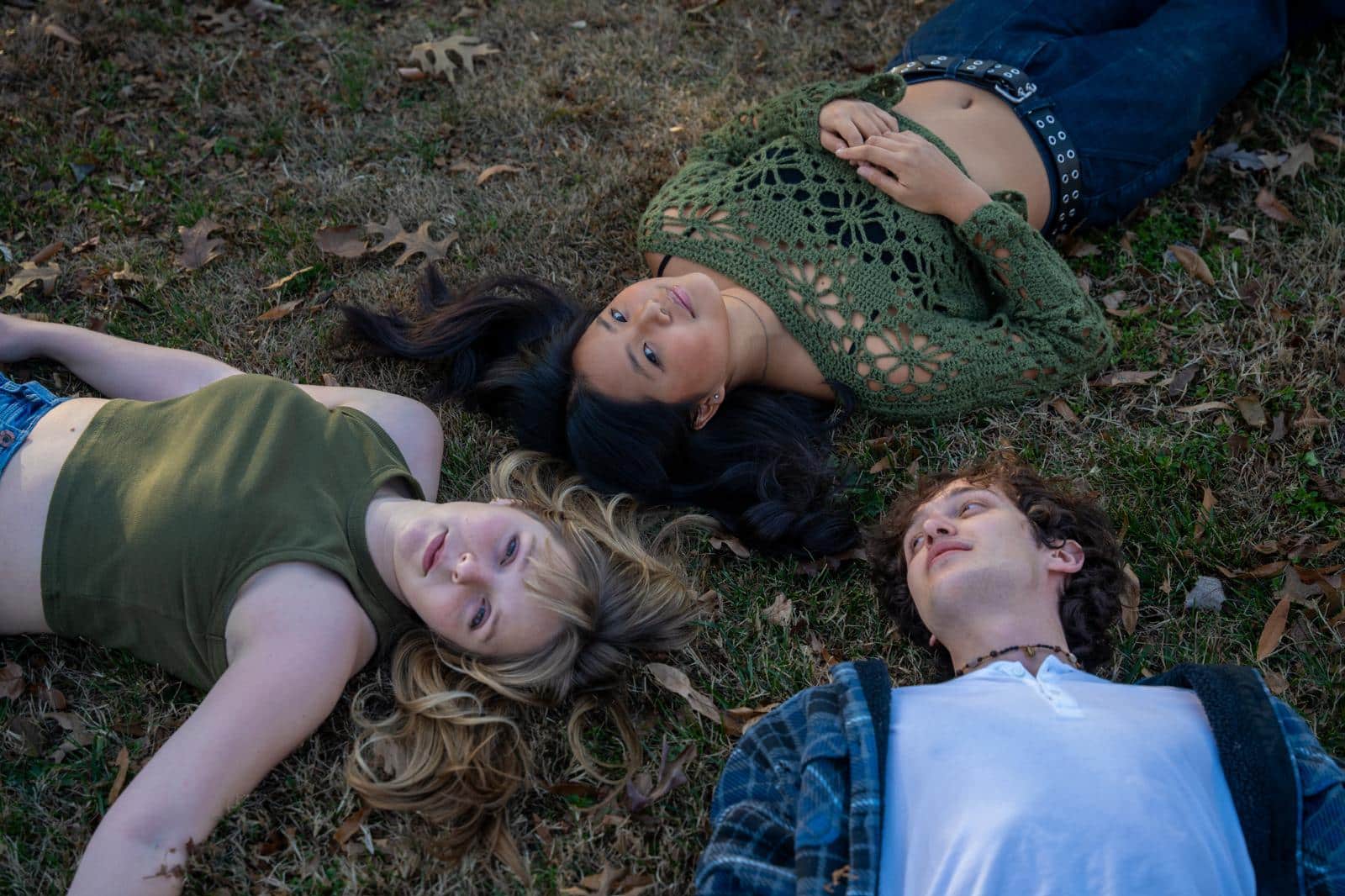
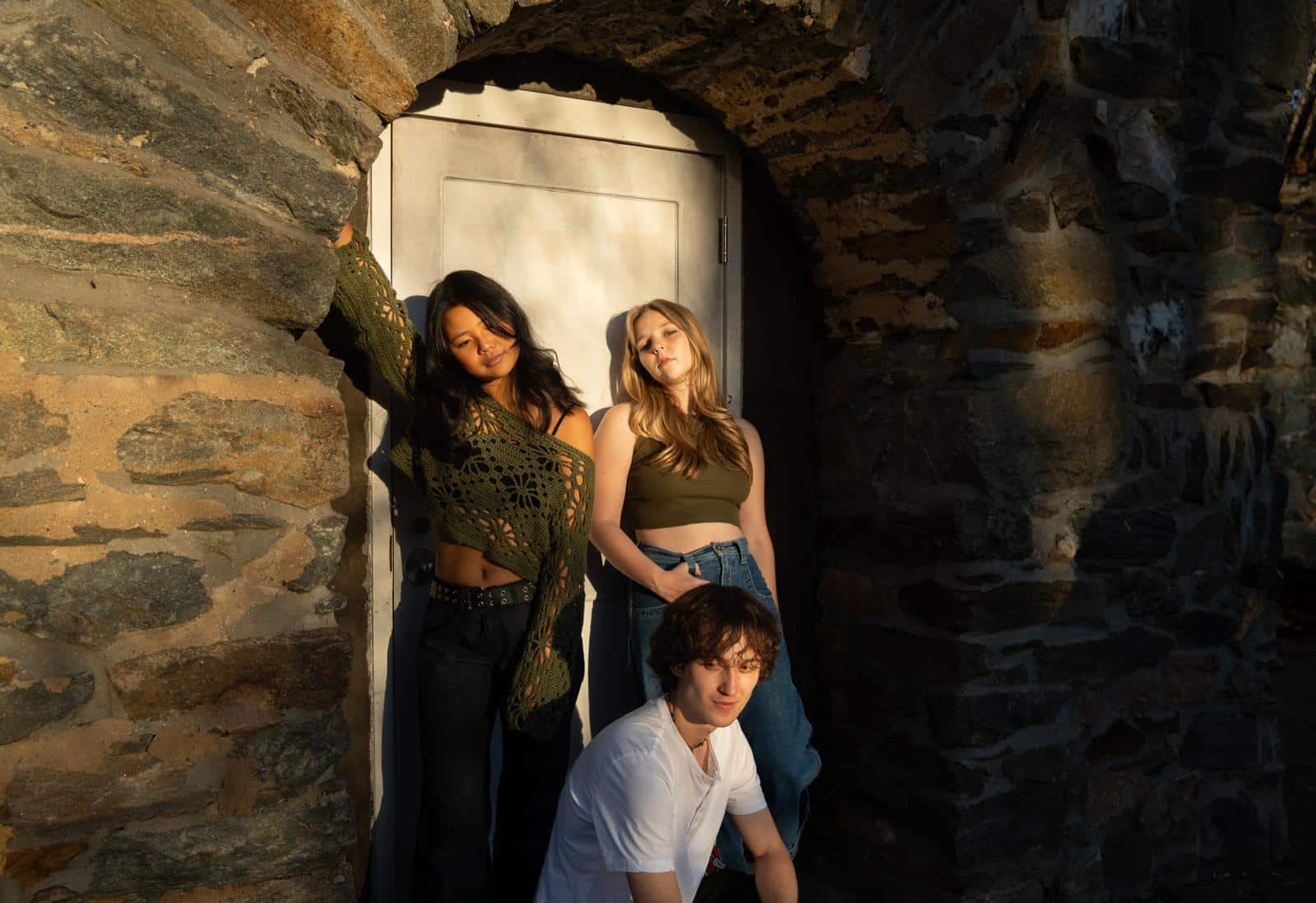
Songs like Beach Town and Winter in New England speak to the quiet violence of small-town monotony. Do you think those places ever really leave you?
Peyton: These two songs definitely work in tandem to describe my dual experiences with seasons in the coastal town I grew up in and shaped who I am today; do they ever really leave me? Not yet. I feel like I can’t leave them for the most part too. Moving somewhere without a super accessible beach has had me drawn to the Northeast coast lately and as much as I like to think when I go back home I’m this fully evolved version of myself, I definitely still find myself reverting to an older mindset, sitting in my childhood bedroom and driving down the same old roads.
How much of Before We Begin is autobiographical, and how much is imagined? Or do you even bother drawing that line anymore?
Peyton: A lot of this album is revisiting an old headspace I lived in when I was a teenager; she would certainly say that the message of these songs and the stories I touch on are completely autobiographical. Looking back, I can definitely say I’m a pretty dramatic person; I get caught up in my emotions and the ways that I remember certain experiences can often be tied to the feelings I had during them. I don’t think it’s too important to draw a line though; these words feel true to me, or at least a version of me.
The record moves between sparse folk and widescreen rock. Did you ever worry that chasing both intimacy and scale would pull the album in too many directions?
Colter: The funny thing about Night Hawk being highly conceptual is that pretty much since the decision to make music inspired by Hopper’s paintings, we’ve been bucking our own narrative designs and genre inclinations to follow wherever our songwriting takes us. Peyton and I are both very mercurial people when it comes to our music. At various points throughout the last couple years, our debut album was going to be a strict concept set in the world of the Hopper painting Nighthawks, a stripped-back indie folk record, and a heavy alternative rock album inspired by bands like Momma and Wednesday. So I think it is sort of fitting that the final product hints at all three. I think if we ever started to worry too hard about pushing in so many different directions with this album, we might never have released it. From an instrumental standpoint, I think giving a big rock record the chance to breathe is absolutely vital. On this album it was a chance to lay bare some of our personal vulnerability in life and love over a difficult transition from Maine to D.C., and adolescence to adulthood, when those things might otherwise have gotten a bit drowned out in the firework show of the full band.
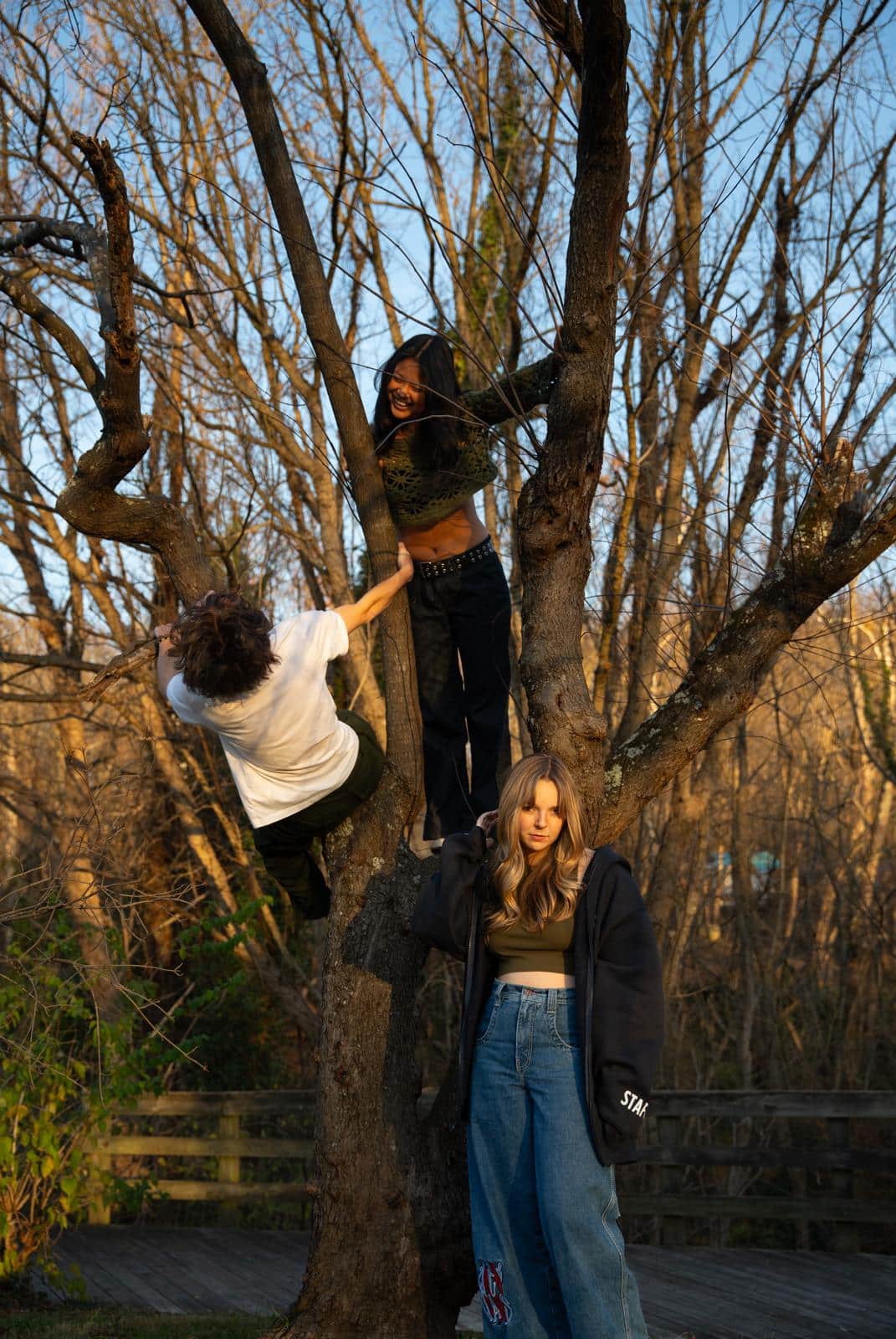
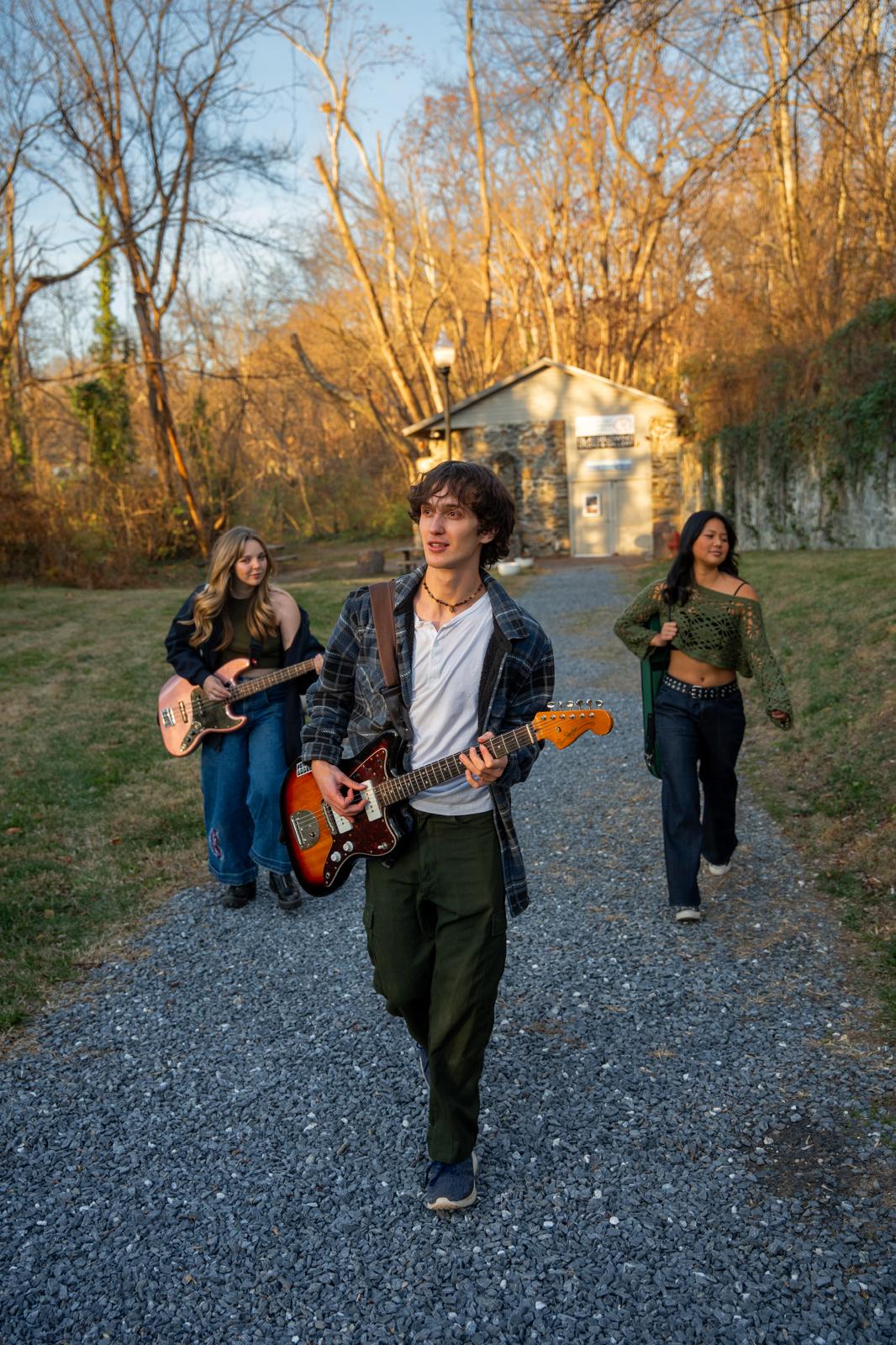
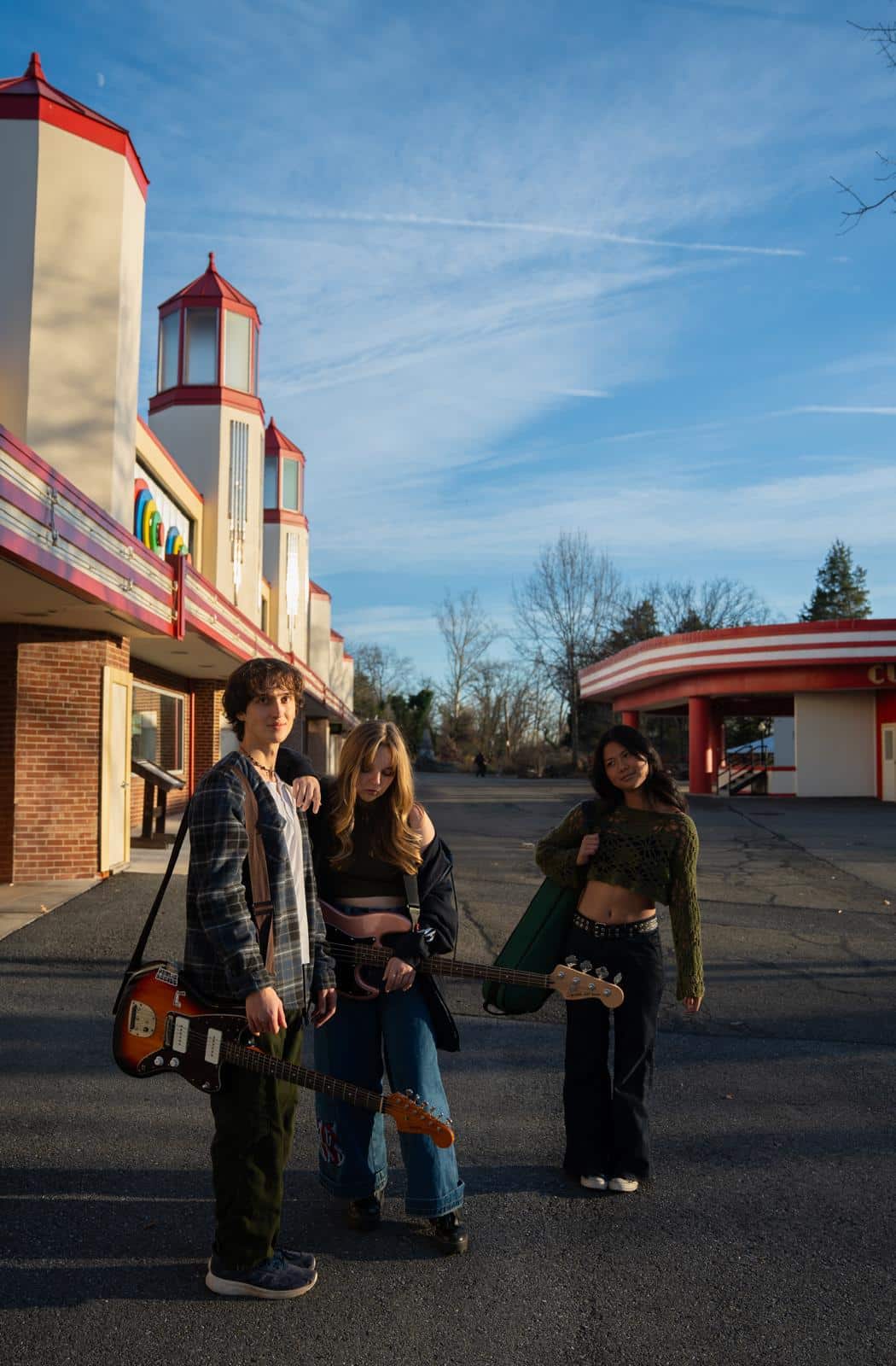
You’ve collaborated with everyone from local artists to the Whitney Museum. Does being part of a larger creative community make it easier or harder to stay true to yourselves?
Colter: Our larger creative community is a huge reason why both Peyton and I wanted to keep doing this after college. The opportunity to make lasting friends by sharing the stage is undoubtedly one of the most surreal and momentous experiences a person can have. First and foremost, this means our extraordinary bandmates. But also, another great example: we’re touring with Chrysalis and Tiberius as part of our album release, two artists that Peyton and I gleefully texted back and forth about before we had any real hope of performing with them. Meeting your heroes, in our case Colin Miller in Asheville and the band Sadurn, can be humbling and nerve-wracking but it is also a great reminder that so many great musicians are down to earth people with something big and meaningful to say who’ve honed their ability to express it. I think in many ways, our larger creative community has reaffirmed that the best way to pursue music is to stay true to your muse.
The title implies a kind of prelude. What’s the next chapter you hope listeners will hear in the story you’re telling?
I’m glad you caught this! In some ways it’s a wink at our first EP last year, Everything Good Ends, to signal that we are still teetering on the precipice of this big, scary, transition in life to real, bonafide adulthood. But it is also a way of saying we are just getting started. Peyton and I got to the other end of this rollercoaster album with an unfettered confidence in the importance of music in our lives and the musical community we are a part of. I think our next chapter will project reflections on personal growth, independence, and fear of the unknown on even wider screens, with instrumental anchors that are more self-assured, warmer, and playfully whimsical. But who knows! Maybe the next album will be the Edward Hopper concept record that never was. Only time will tell!


